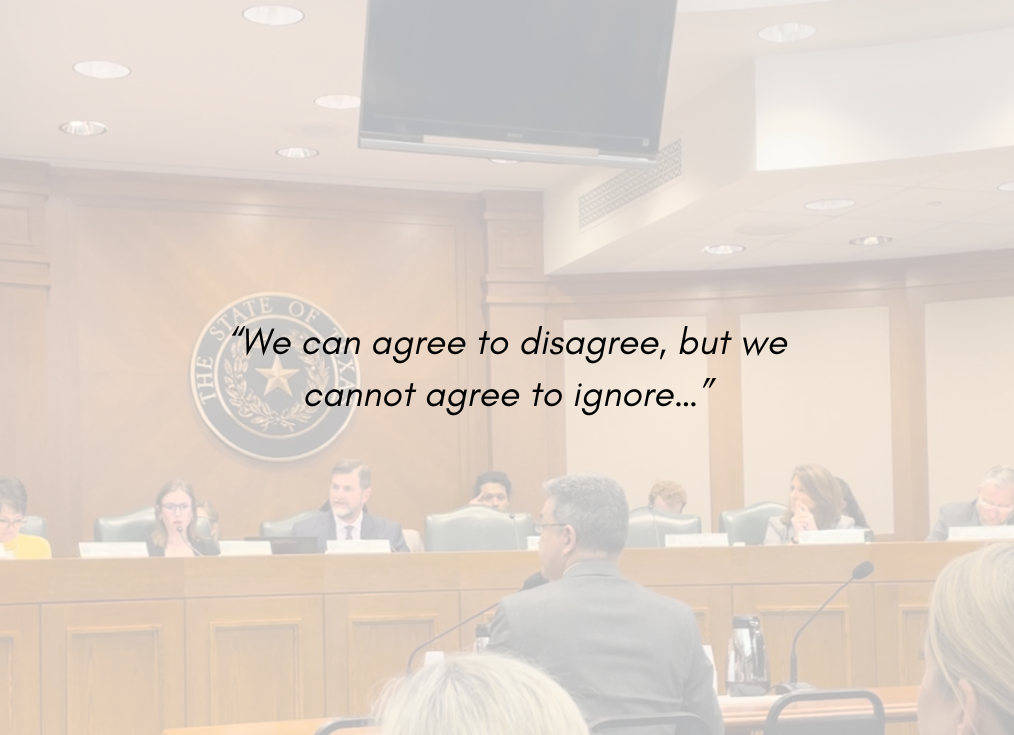Our Obligation to Assist

March 31, 2023 / Nissan 9, 5783
What a week for the Holocaust Memorial Museum of San Antonio (HMMSA). Last night there were over six-hundred guests spanning two venues honoring the museum’s accomplishments and collectively raising more than $800,000 for the museum’s operations over the next two years.
Even after the event concluded, and well into late night, guests took the time to email and text me how important it was to share the message of collaboration between Jews and non-Jews and advance the museum’s reach with increased programs and outstretched collaborations. In fact, I was asked to share some of the data and source text quoted in my speech, so I have linked it HERE for reference.
Additionally, on Wednesday morning, I was honored and privileged to testify at the Texas Senate Education Committee in support of Senate Bill 2482, which will enhance and expand the current Senate Bill 1828, Holocaust Remembrance Week education in public schools. (You can view the Senate Hearing through this link to the recording – the testimony starts at the 5-minute mark.)
So, it was with a lens of all that the HMMSA is doing to expand its educational footprint and influence on raising awareness on upstander-ship that when I began to read this week’s Torah portion, I identified something which I had not considered in previous readings.
…
Interestingly, last week’s Torah portion was titled Vayikra, the namesake portion of the Book of Leviticus, but which literally means “And [Gd] called.” Whereas this week’s portion is titled Tzav, meaning “command.” At first glance, these might seem unrelated; however, when we consider that last week Gd “called” Moses to speak to the Israelites versus this week, where Gd calls Moses to “command” Aaron, we must ask, why the difference in tone and approach?
Our great sage Rashi explained that the expression “command…” implies urging to fulfill the command immediately, including the responsibility for future generations. But Ramban has a slightly different perspective spanning the two Torah portions instead of looking at this week’s parshah alone.
The Ramban differentiated the individual Israelite’s responsibility of last week’s sacrifices versus the collective rites of the offerings made by the priests in this week’s text. This nuance highlights Gd’s approach to the student versus the teacher. Go “speak” to the student about their personal responsibility, and commitment is the message from last week. However, when it comes to the teachers, you must impress upon them the importance of future generations and all those who will be influenced by each student for generations to come.
When it comes to the story of the Holocaust and our responsibility to “Never Forget,” this obligation is not only personal and a deep part of our core identity, but also carries the responsibility to be teachers of the message to those to whom it is not so personal. In this case, we are obligated to help society and the non-Jewish community see the signs that lead to hate, segregation, pain, and suffering, here we are commanded to educate the uneducated.
The HMMSA programs are driven by the refrain, “Now that you know, what will you do?” This question is posed to every visitor so that the lessons learned, information gleaned, and experience personalized after visiting the museum do not end at the exit door. I challenge each of us to consider our obligation to assist humanity, especially in times like these, where we are so divided, partisan, and siloed, to see that being an upstander means giving up a little of the pride, ego, and self-interest, in order to help others see what we might see intuitively, that we must always show one another respect and dignity. We can agree to disagree, but we cannot agree to ignore, disenfranchise, and segregate from people who think differently than we do. Because we are…
Shabbat Shalom,

